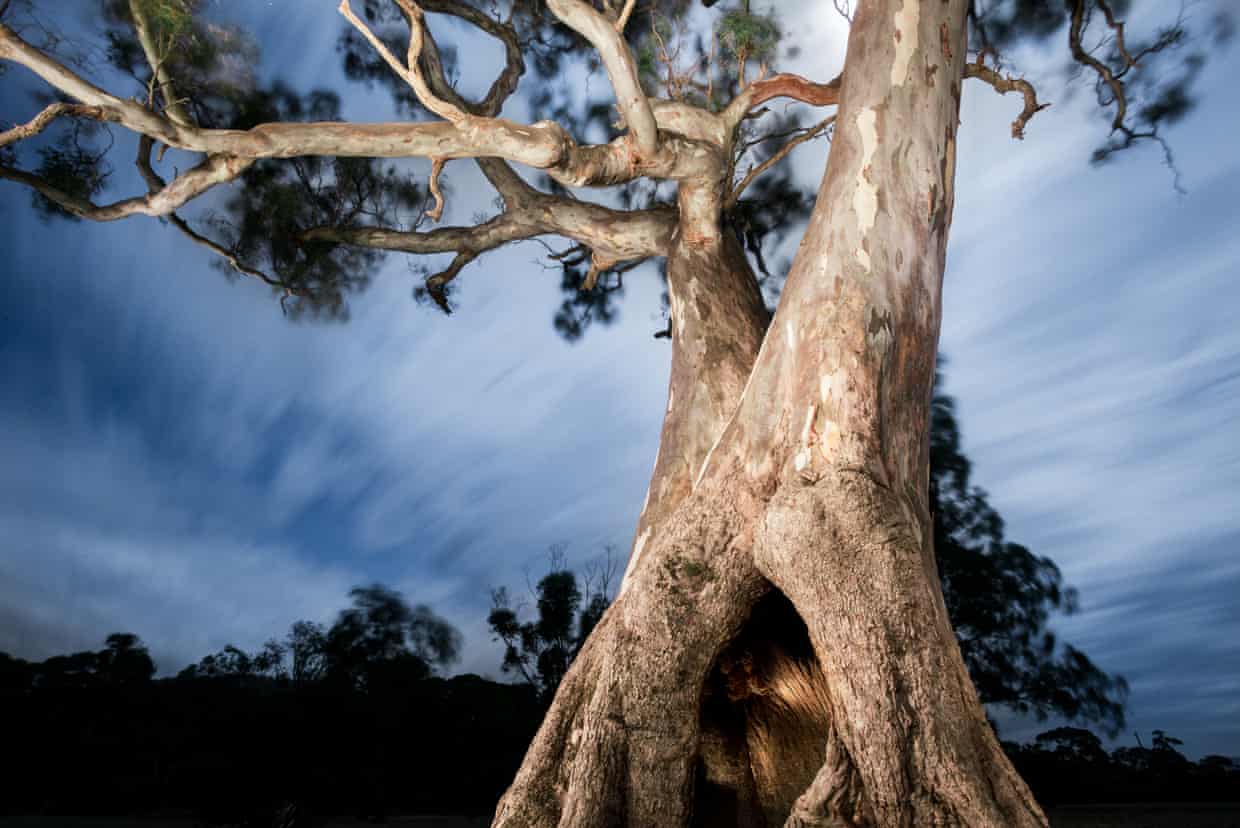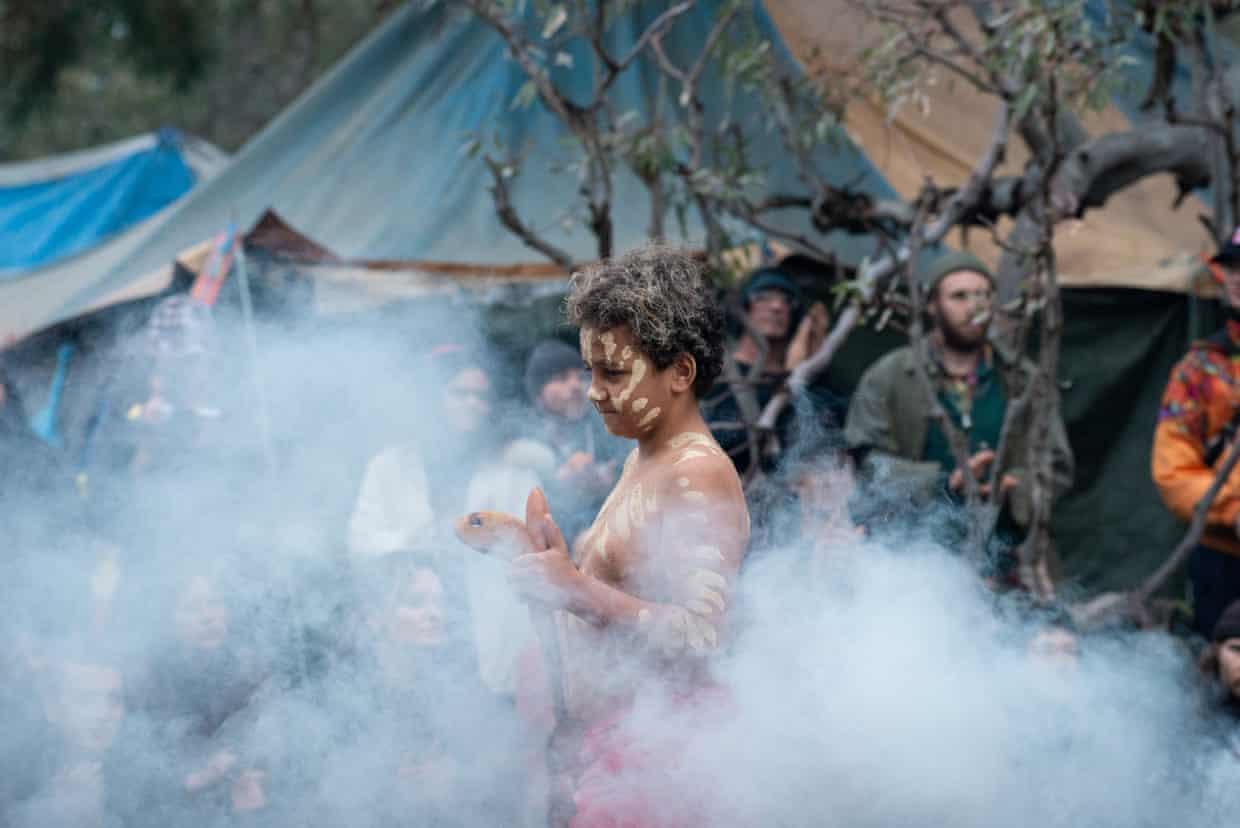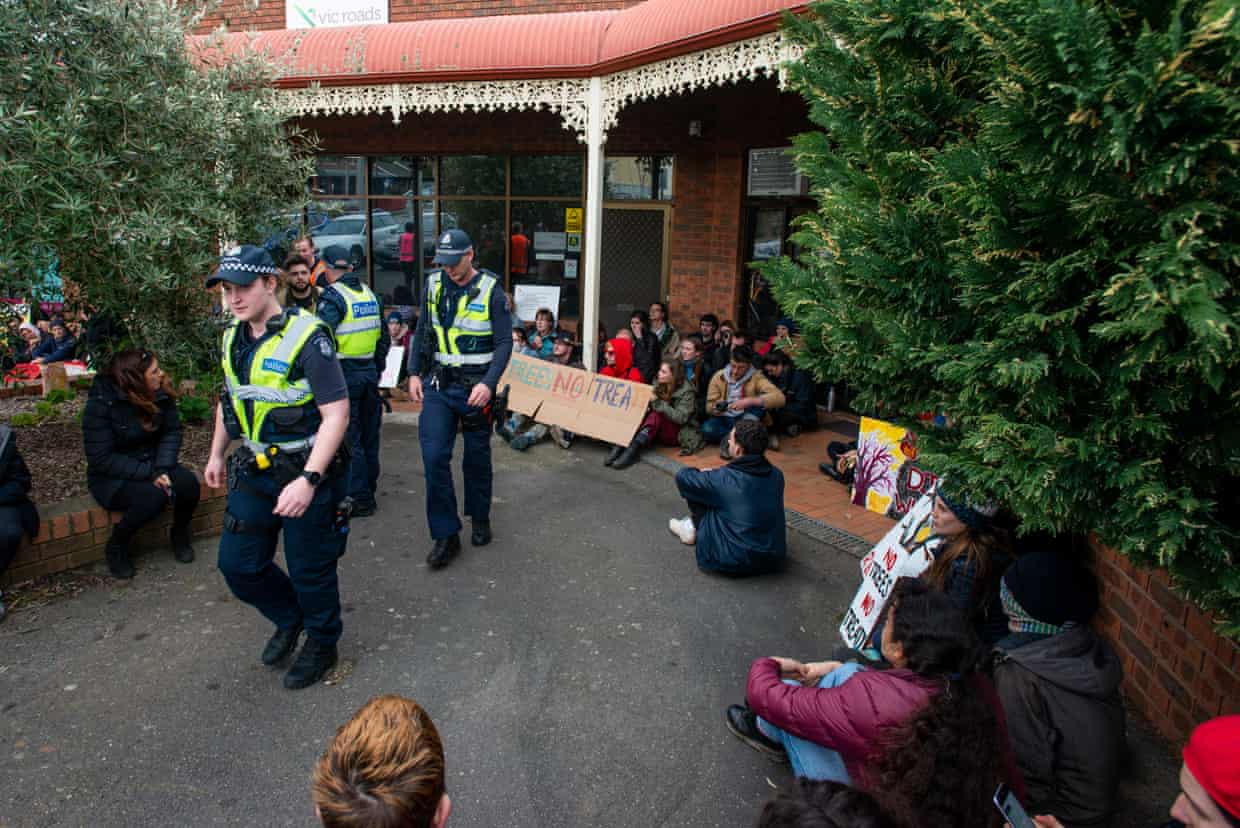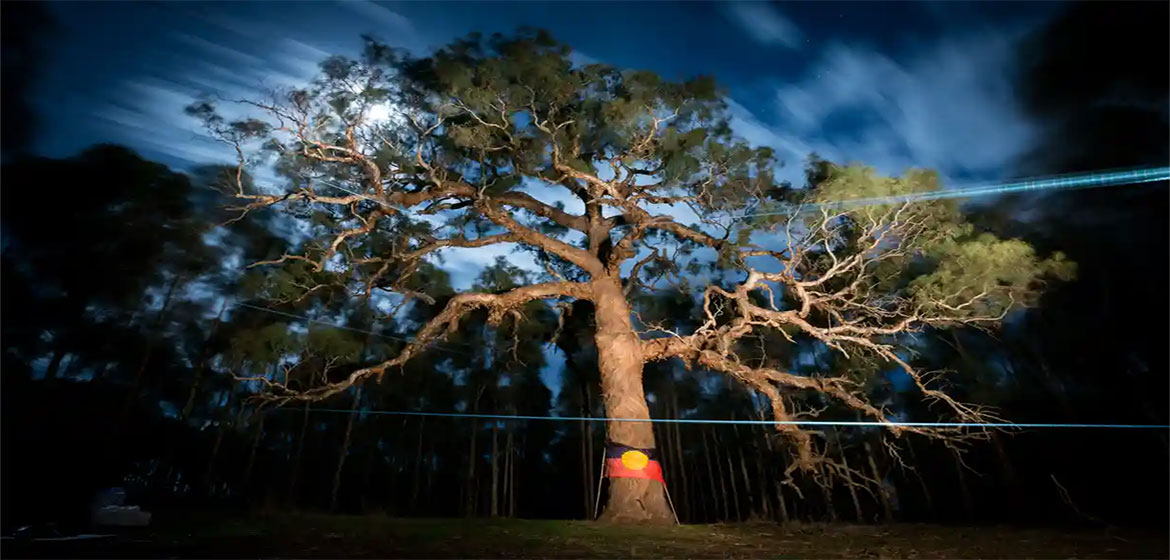By Lisa Martin
Victoria police circle ahead of slated bulldozing of more than 260 trees that are significant to Aboriginal women
A standoff between authorities and hundreds of protestors trying to protect sacred trees in western could come to a head on Thursday night as a police evacuation deadline looms.
More than 260 Djap Wurrung trees that are 800 years old to make way for a 12km duplication of the Western Highway between Buangor and Ararat.
The highway is the main road link between Melbourne and Adelaide and authorities argue the upgrade is vital for safety after 11 road deaths on the stretch between Ballarat and Stawell since the beginning of 2013.
Former state MP Lidia Thorpe, who is a Djap Wurrung woman, has been at the protest tent embassy this week with her youngest daughter, aged 11. Some protestors have been camping there for more than a year and Thursday marks the two-week deadline to leave the site.
Thorpe likened the trees’ in April.
“The outcry over what happened to [Notre Dame] – a significant cultural, spiritual place that people feel they have a deep connection with – that’s how we feel,” she told Guardian Australia.
“This is a sacred place, this is like a church. This is our church. This is a place where we connect and heal and unite as a people. It’s a place where we talk to our ancestors. No one would ever think about destroying a church for a road.”
Some are “birthing trees” which local Aboriginal women have used as a place to give birth for an estimated 50 generations.
“It’s a part of us, it’s not just a tree. It’s an ancestor tree, it’s got a lot of knowledge,” she said.

Some of the Djap Wurrung trees have been used for around 50 generations as a place for local Aboriginal women to give birth. Photograph: Sean Paris
Thorpe dismissed claims from the state government that it had consulted with two registered Aboriginal organisations about the route.
“The government set up the process to manufacture consent,” she said.
The atmosphere at the tent embassy was “peaceful and calm”, Thorpe said.
“People don’t want to be arrested, people don’t want to be hurt, we want to reconcile the situation as quickly as we can,” Thorpe said.
The road project is running two years behind schedule and has stirred controversy for a decade amid legal action and protests. There are reports
Protester Banjarra Warri said about 200 to 300 campaigners were digging in for the long haul, but “spirits were high”.
“To me the trees are life. They birth life, they give life and breathe life. We’re going to do all we can to stay here as long as we can to save these trees. If we don’t save them, no one else will.”

Local Indigenous people perform at the protest site on Wednesday. Photograph: Sean Paris
Tent embassy spokeswoman Amanda Mohamet said Australians from all walks of life were backing the campaign.
“Premier Daniel Andrews will be on the wrong side of history if the Victorian government pushes ahead to desecrate this sacred Women’s Country,” Mohamet said.
“We are the traditional custodians of this part of country, and we have a cultural obligation to be here.”
Indigenous protesters held a traditional smoking ceremony overnight after staging a protest outside Ararat’s VicRoads office in the afternoon.

Djap Wurrung protesters sit out the front of the VicRoads office in Ararat on Wednesday. Photograph: Sean Paris
A spokeswoman from Major Roads Project Victoria said light surveying work had already begun at the site last week. She said a work schedule was still being developed.
A government spokeswoman said the highway duplication was necessary to “improve the safety for people in Victoria’s west and has overwhelming support of both of the traditional owner groups that represent the Djab Wurrung people.”
Victorian police declined to comment.
Source:
Related to SDG 13: Climate action and SDG 10: Reduced inequalities



